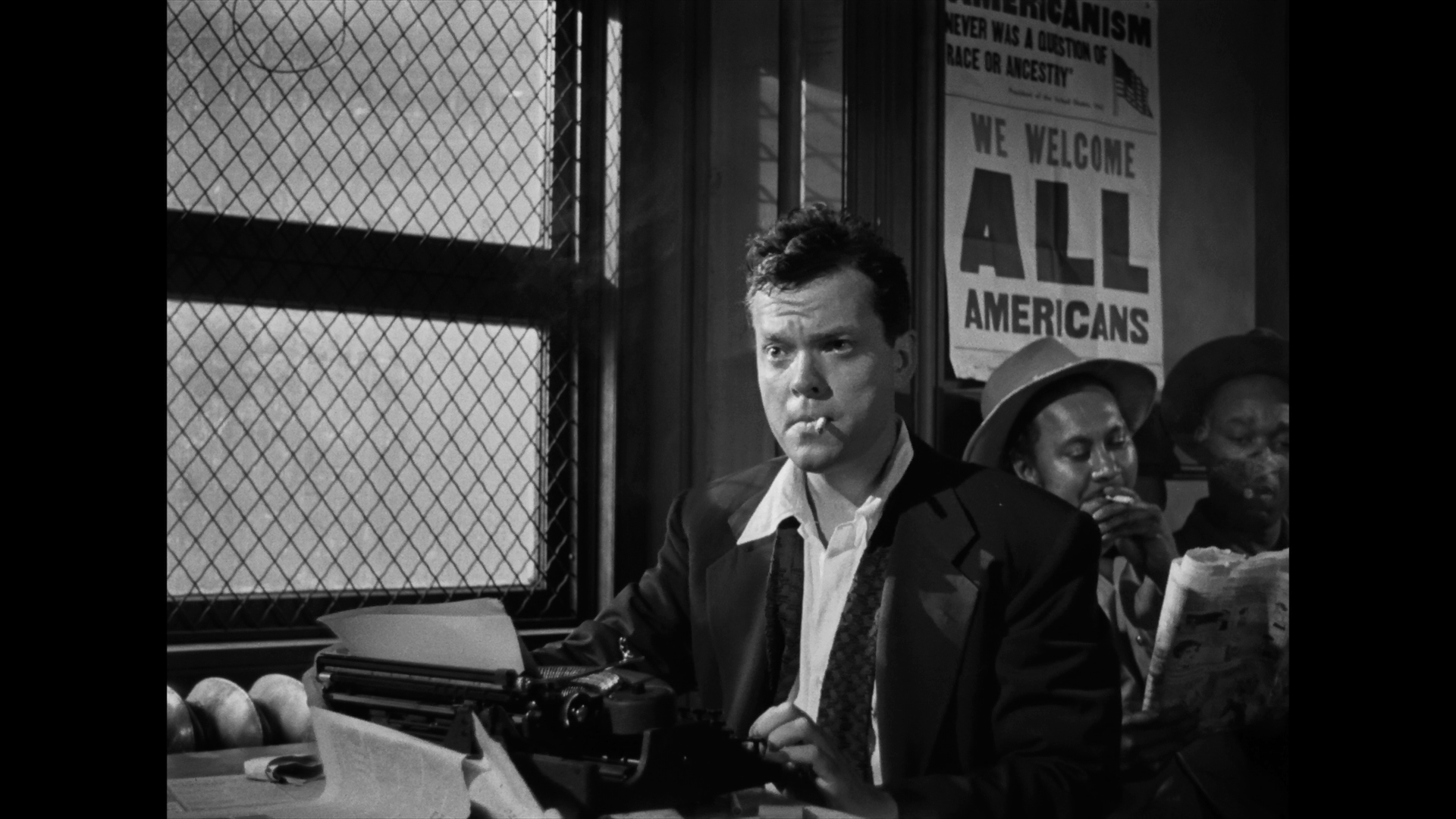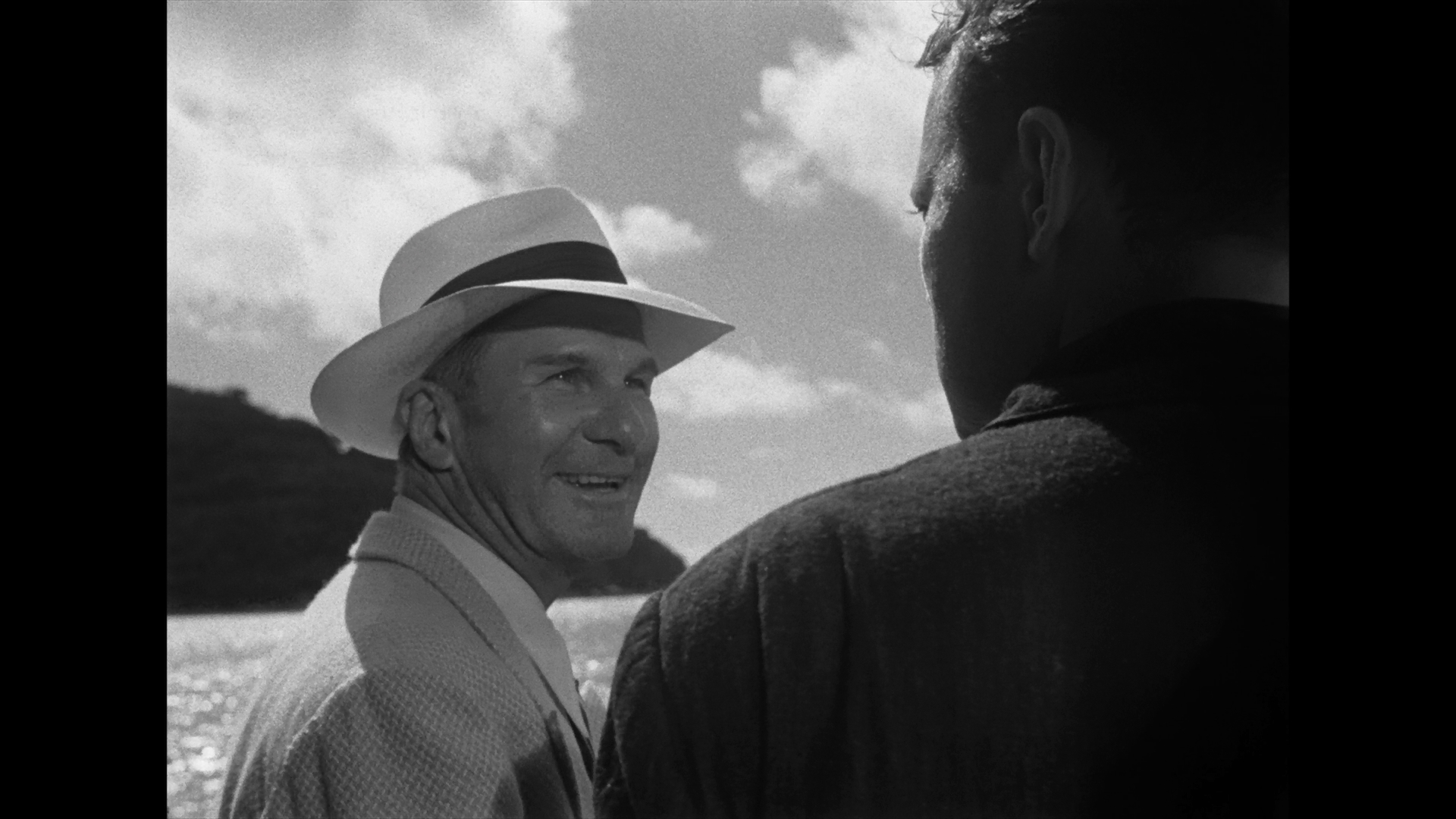
B&W, 1947, 87 mins. 30 secs.
Directed by Orson Welles
Starring Rita Hayworth, Orson Welles, Everett Sloane, Glenn Anders, Ted De Corsia, Erskine Sanford
Indicator (Blu-ray & DVD) (UK R0 HD/PAL), TCM (Blu-ray) (US R0 HD), Mill Creek (Blu-ray) (US R0 HD), Sony (DVD) (US R0 NTSC)

 The legendary and highly uncontrollable Orson Welles kissed his big studio career goodbye for many years thanks to this strange, splashy film noir designed as a vehicle for his wife at the time, red-haired screen siren Rita Hayworth. The circumstances of the film's genesis (as a money-raising project for Welles' Mercury Theater) and its very troubled history with Columbia Pictures have since become legendary, with Welles clashing with studio suits and his lengthy film ordered to be chopped down by over an hour and outfitted with an unapproved music score. Of course, it's a miracle the film ever got released at all, especially when you see how futile any efforts were to hammer out its strangeness. Packed with great scenes and baffling little touches, it easily joins Welles' other turbulent projects as a mystery that keeps bringing viewers back over and over to unravel a project that seems to offer something new every time you look at it.
The legendary and highly uncontrollable Orson Welles kissed his big studio career goodbye for many years thanks to this strange, splashy film noir designed as a vehicle for his wife at the time, red-haired screen siren Rita Hayworth. The circumstances of the film's genesis (as a money-raising project for Welles' Mercury Theater) and its very troubled history with Columbia Pictures have since become legendary, with Welles clashing with studio suits and his lengthy film ordered to be chopped down by over an hour and outfitted with an unapproved music score. Of course, it's a miracle the film ever got released at all, especially when you see how futile any efforts were to hammer out its strangeness. Packed with great scenes and baffling little touches, it easily joins Welles' other turbulent projects as a mystery that keeps bringing viewers back over and over to unravel a project that seems to offer something new every time you look at it.  who reluctantly agrees and
who reluctantly agrees and  thinks it might be a way to win Elsa away from her husband. However, another surprise arrival and several double crosses emerge by the time they arrive in San Francisco, where Michael finds that being hounded by the law is the least of his worries.
thinks it might be a way to win Elsa away from her husband. However, another surprise arrival and several double crosses emerge by the time they arrive in San Francisco, where Michael finds that being hounded by the law is the least of his worries. 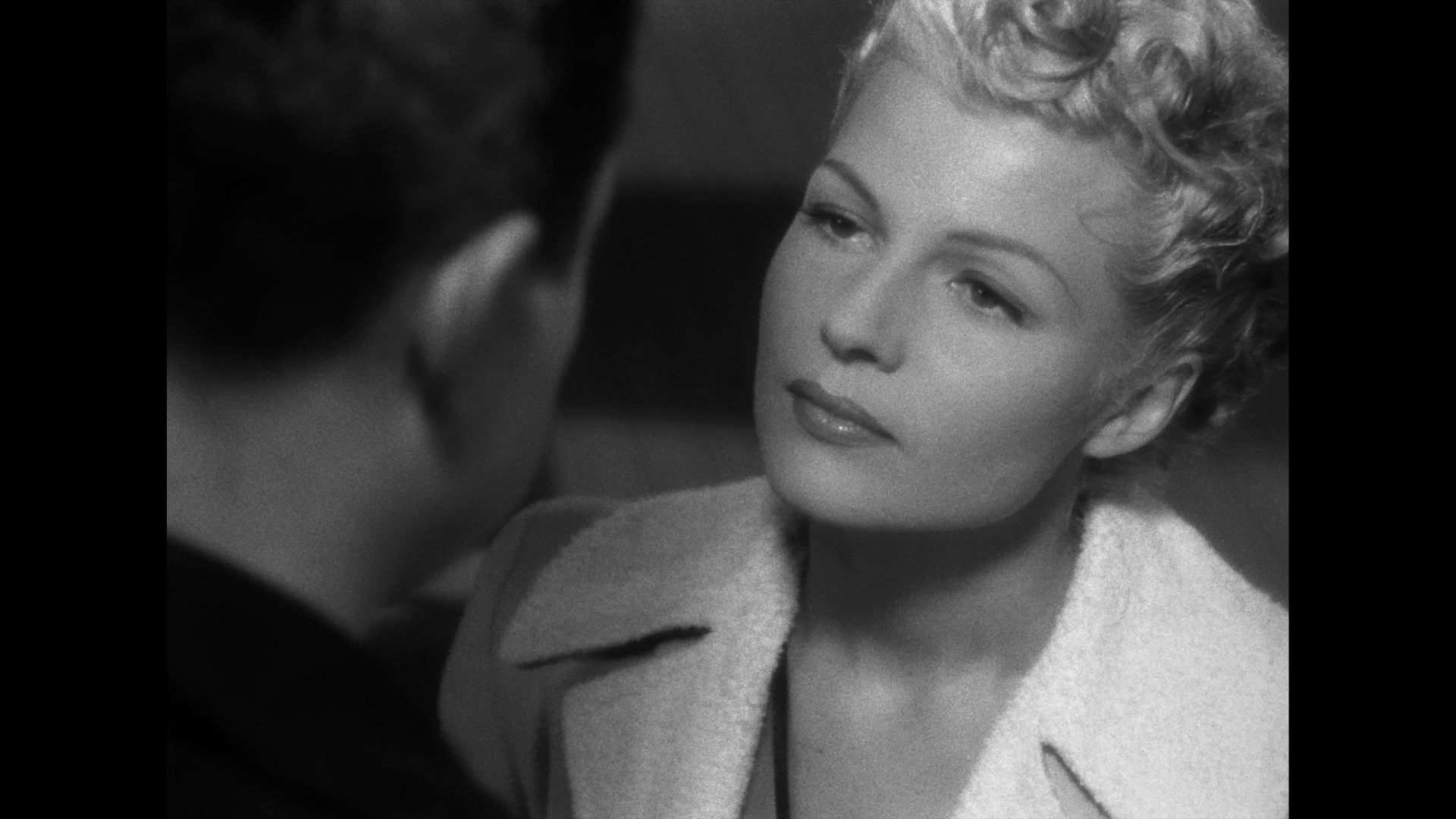 conducted that resulted in a pristine new master, though the first release from Turner Classic Movies in early 2014 was blasted for its substandard VC-1 encoding,
conducted that resulted in a pristine new master, though the first release from Turner Classic Movies in early 2014 was blasted for its substandard VC-1 encoding, 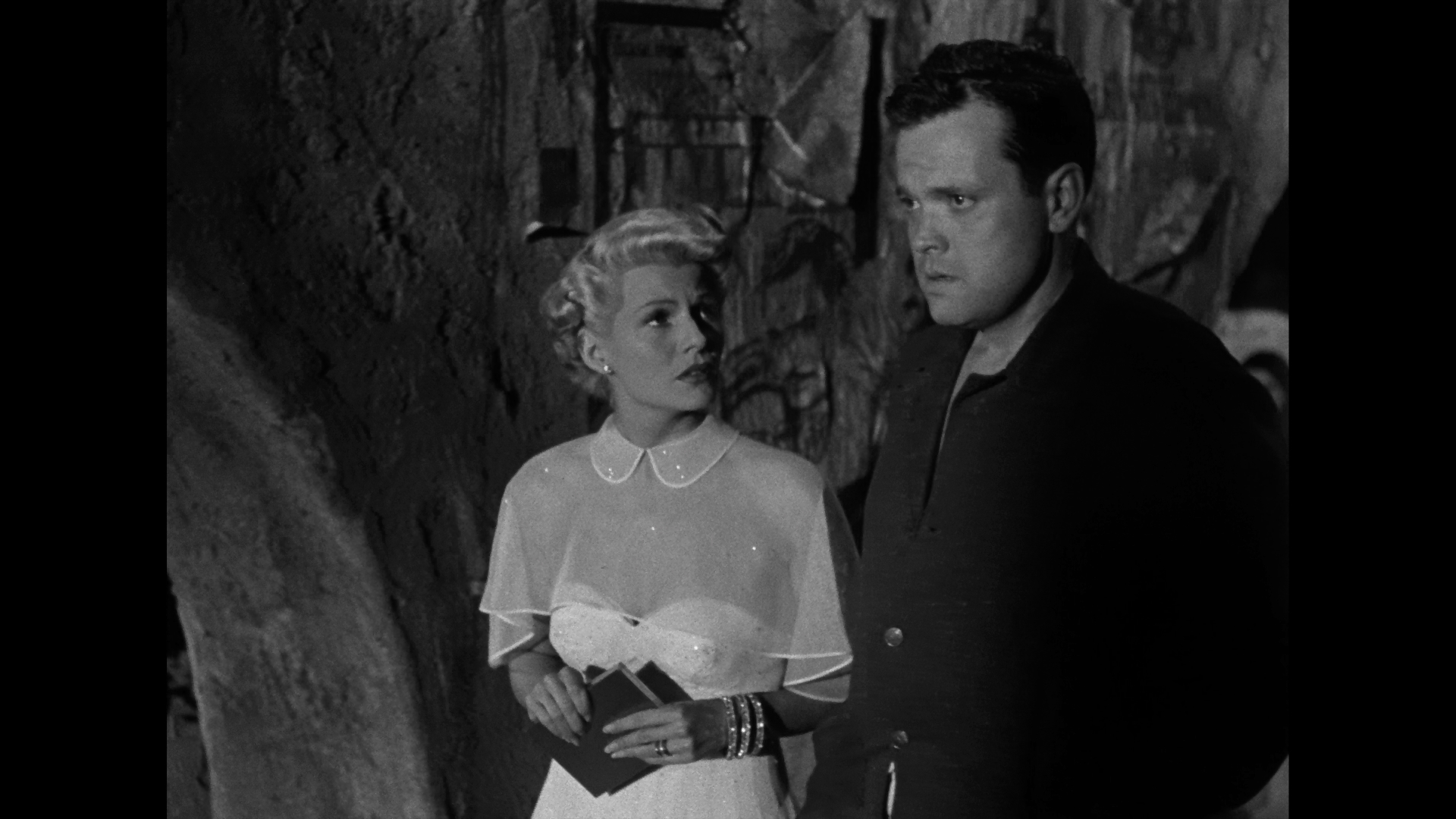 paltry bit rate, and generally weak appearance, not to mention a lossy Dolby Digital track. That edition contained one extra from the general 2000 DVD edition, an audio commentary by Peter Bogdanovich (your mileage will vary on this one depending how much of a tolerance you have for his usual "I was good friends with Orson Welles" routine) and dropping a 20-minute Bogdanovich interview that covered most of the same ground. New to the first TCM edition are an intro by the late Robert Osborne, a half-hour Noir.net podcast, separate stills and poster galleries, production and publicity photos, and talent bios and TCM articles. An advertised "comments" feature by film noir expert Eddie Muller also failed to materialize. Complaints about that release led to a TCM reissue six months later, featuring a superior and significantly darker presentation with a Dolby TruHD track and much better encoding -- not to mention that elusive Eddie Muller material, which is chopped up into three new featurettes ("An Epic Noir Poem," "Back Story," and "It's Film Noir Distilled"), all up to his usual high standards. (Not surprisingly, he went on to become a regular film noir host on TCM in 2017.)
paltry bit rate, and generally weak appearance, not to mention a lossy Dolby Digital track. That edition contained one extra from the general 2000 DVD edition, an audio commentary by Peter Bogdanovich (your mileage will vary on this one depending how much of a tolerance you have for his usual "I was good friends with Orson Welles" routine) and dropping a 20-minute Bogdanovich interview that covered most of the same ground. New to the first TCM edition are an intro by the late Robert Osborne, a half-hour Noir.net podcast, separate stills and poster galleries, production and publicity photos, and talent bios and TCM articles. An advertised "comments" feature by film noir expert Eddie Muller also failed to materialize. Complaints about that release led to a TCM reissue six months later, featuring a superior and significantly darker presentation with a Dolby TruHD track and much better encoding -- not to mention that elusive Eddie Muller material, which is chopped up into three new featurettes ("An Epic Noir Poem," "Back Story," and "It's Film Noir Distilled"), all up to his usual high standards. (Not surprisingly, he went on to become a regular film noir host on TCM in 2017.) 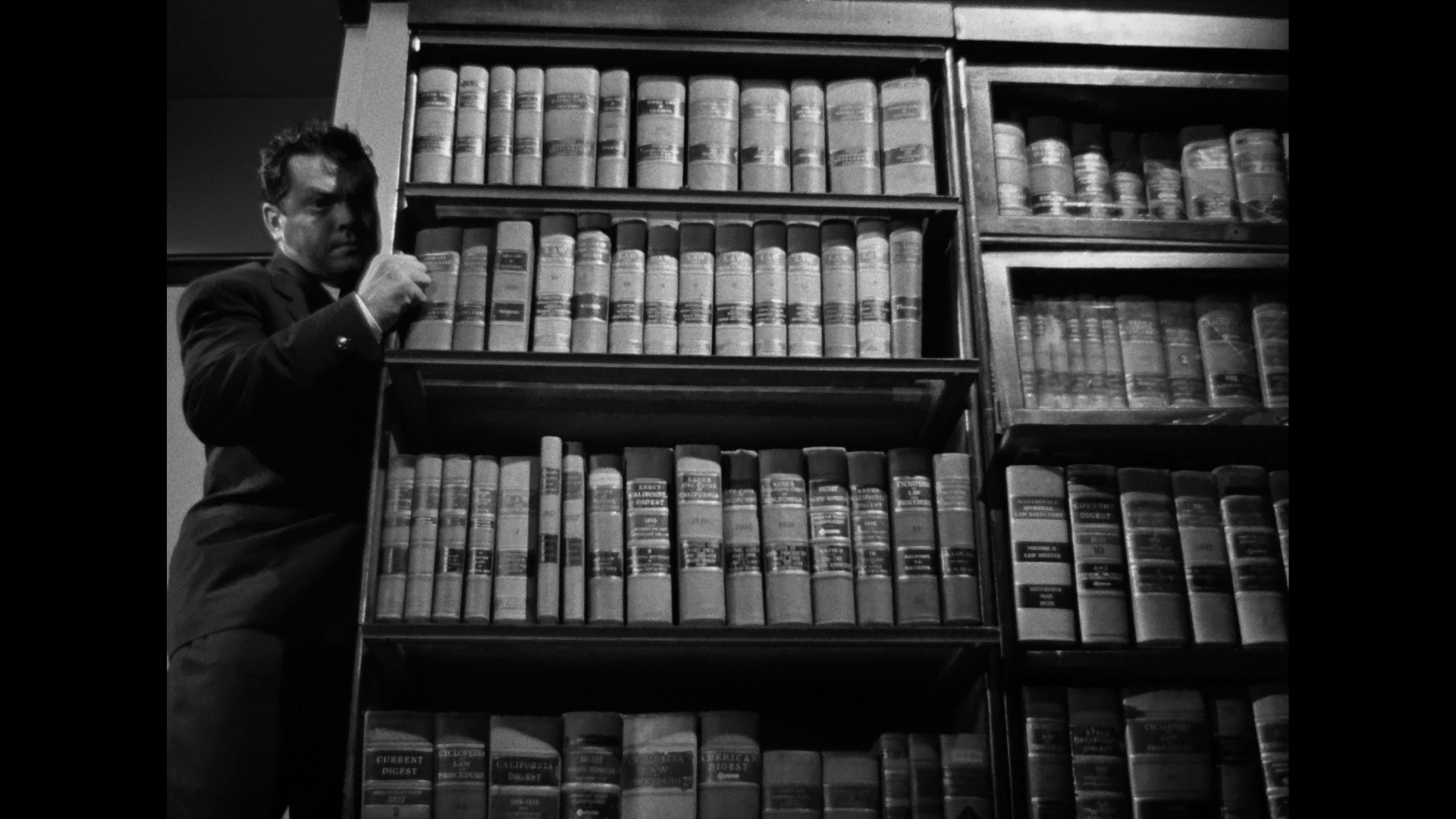 Weirdly, a year later a budget Blu-ray release with zero extras was released by Mill Creek, featuring a DTS-HD MA English mono track and a very similar but slightly brighter transfer
Weirdly, a year later a budget Blu-ray release with zero extras was released by Mill Creek, featuring a DTS-HD MA English mono track and a very similar but slightly brighter transfer  from the same restoration source.
from the same restoration source. 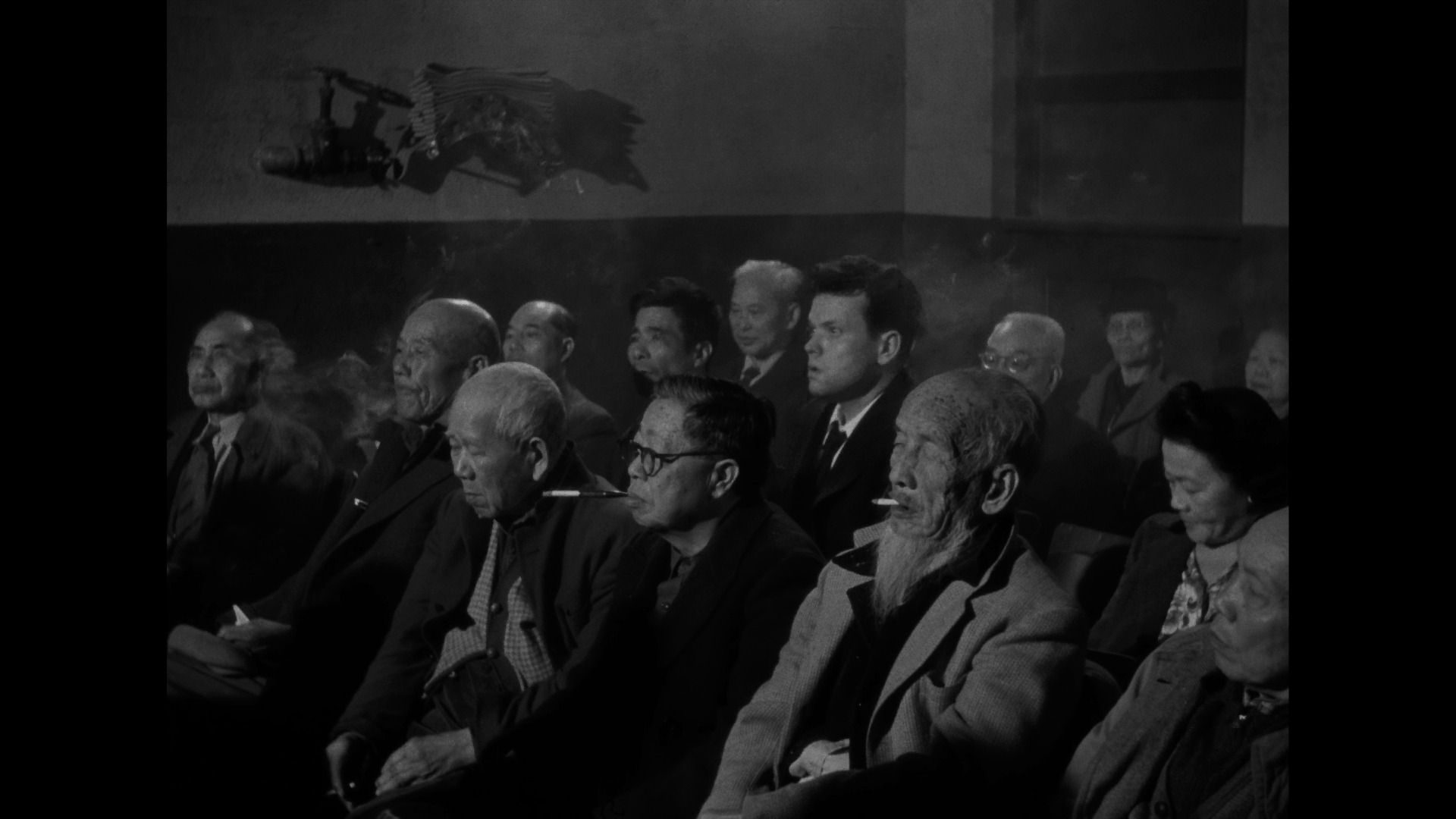 Salina (where's that special edition?). The theatrical trailer is also included, while Joe Dante appears for a Trailer from Hell version of it as well with an intro about his views on Columbia's overreaction to
Salina (where's that special edition?). The theatrical trailer is also included, while Joe Dante appears for a Trailer from Hell version of it as well with an intro about his views on Columbia's overreaction to 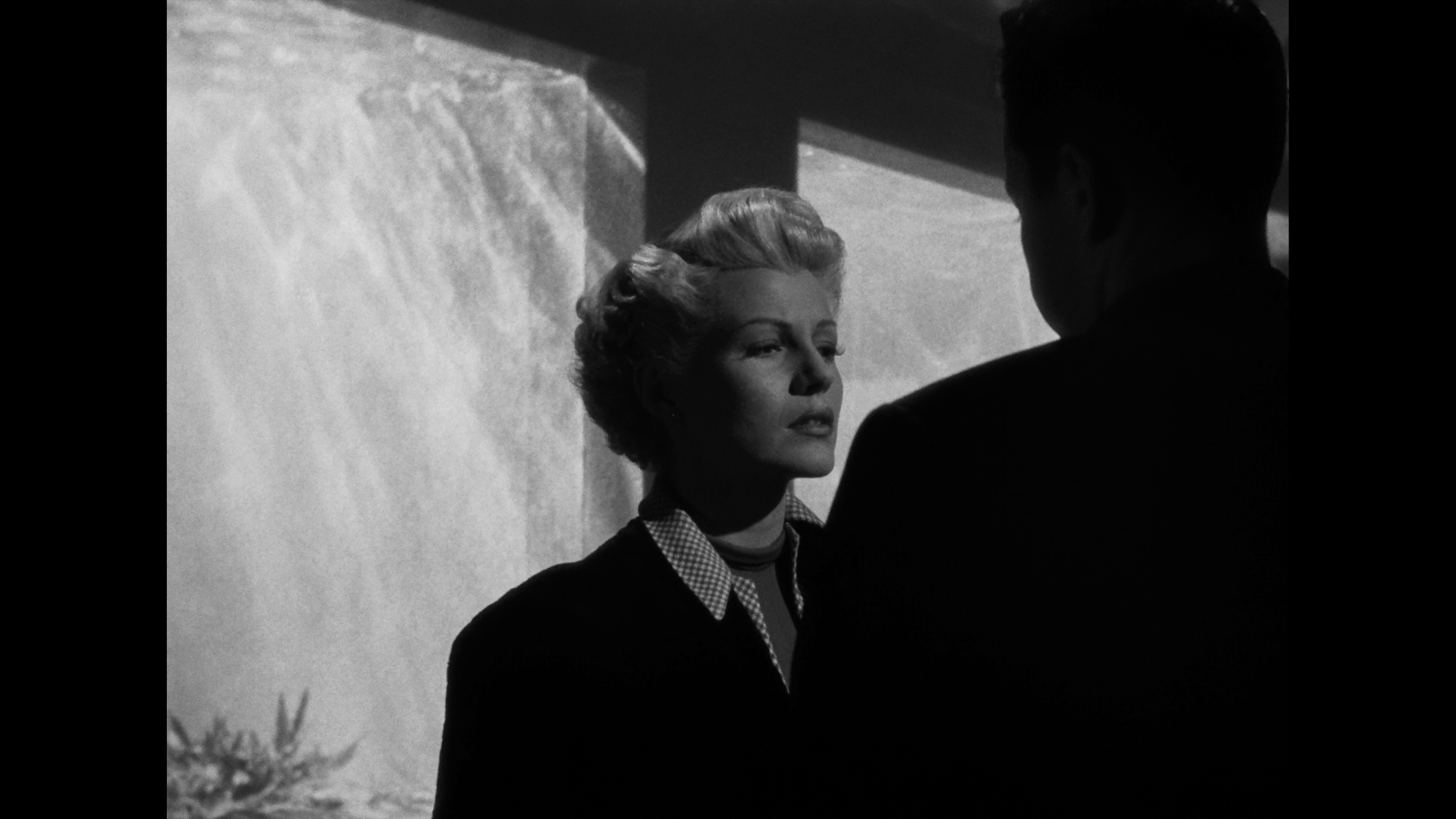 Welles' rough cut. An extensive and quite beautiful HD image gallery of promotional and production stills is worth a look, too, as is the insert liner notes booklet with an excellent piece by Samm Deighan about Welles' transition to this film from The Stranger, the changes from Sherwood King's source novel If I Die Before I Wake, the ties to Greek mythology, and the film's (and Welles') perspective on Asian characters. Also included is an extract from the one and only William Castle's (spectacular) autobiography, Step Right Up!... I'm Gonna Scare the Pants Off America, in which the longtime Columbia vet talks about his own involvement in the film from writing an early treatment to serving as associate producer, including extensive production diary entries with a focus on the boat, the Zaca, which belonged to Errol Flynn. Finally you get a lengthy memo from Welles about his extreme displeasure with the film's score, plus brief remarks from Sony's Grover Crisp and David Bernstein and MTI Film's Larry Chernoff about the special challenges posed by restoring this film to its absolute best condition possible.
Welles' rough cut. An extensive and quite beautiful HD image gallery of promotional and production stills is worth a look, too, as is the insert liner notes booklet with an excellent piece by Samm Deighan about Welles' transition to this film from The Stranger, the changes from Sherwood King's source novel If I Die Before I Wake, the ties to Greek mythology, and the film's (and Welles') perspective on Asian characters. Also included is an extract from the one and only William Castle's (spectacular) autobiography, Step Right Up!... I'm Gonna Scare the Pants Off America, in which the longtime Columbia vet talks about his own involvement in the film from writing an early treatment to serving as associate producer, including extensive production diary entries with a focus on the boat, the Zaca, which belonged to Errol Flynn. Finally you get a lengthy memo from Welles about his extreme displeasure with the film's score, plus brief remarks from Sony's Grover Crisp and David Bernstein and MTI Film's Larry Chernoff about the special challenges posed by restoring this film to its absolute best condition possible. 
